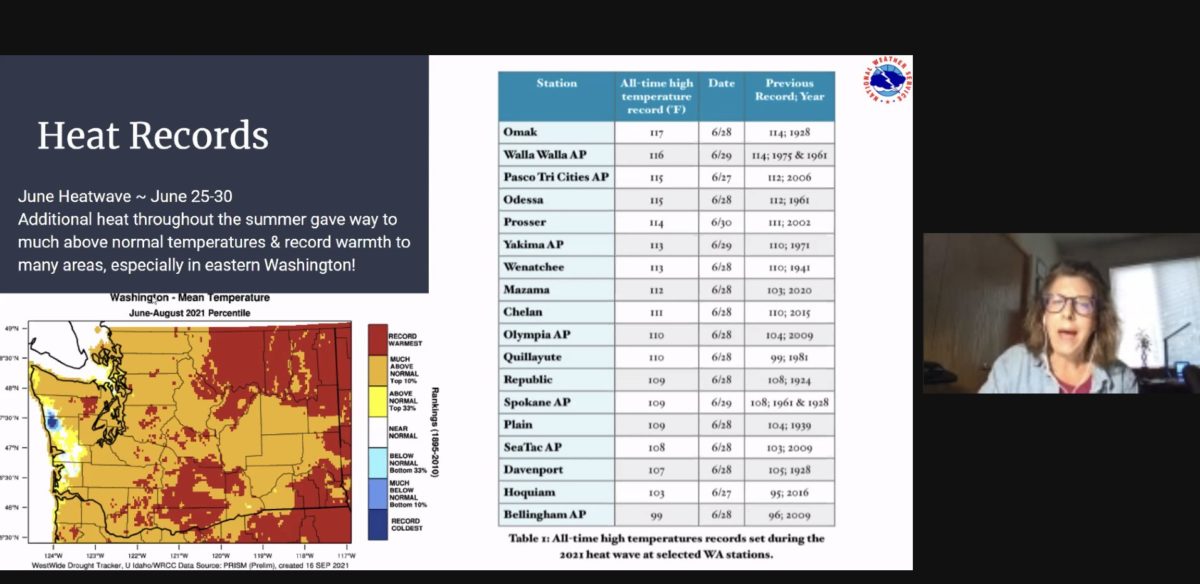Originally published on the ClimeTime website on February 1, 2022
Chelsea Freeman teaches high school in Tonasket, an agricultural community hit especially hard by the drought, record-breaking heat, and wildfire smoke that Washington experienced in summer 2021. But when the school year began, her students asked if climate change was something they needed to worry about. Teachers like Freeman need help connecting the dots between climate change and how extreme weather impacts students and their communities.
Local impacts of climate change like the ones Washington experienced last summer inspired EarthGen’s latest teacher training opportunity, “Hot and Hazy Summers.” In this three-part series presented through a combination of synchronous and asynchronous learning, EarthGen connected teachers with experts on the connections between weather and climate. Robin Fox, meteorologist with the National Weather Service in Spokane, and climate scientist Dr. Kat Huybers from the University of Washington presented the science behind extreme weather events through data and stories. Readings that discussed the impacts of drought, heat domes, and wildfire smoke on farm owners and fieldworkers in the PNW prepared teachers to make climate change relevant for their students.

Representing five ESDs across the state, teachers learned how to complement science with social emotional learning activities. They also explored ways to engage their students in strategies to combat climate change and its effects at the local, state, and national level. Equipped with new knowledge and teaching resources, the teachers returned to their classrooms prepared to implement new lesson plans and action projects with their students. Back in Tonasket, Freeman presented a series of lessons on climate change to her high school students.
“I can see momentum and interest building. We went from that first response in October of boredom, apathy and discouragement, to deciding as a school that we are going to carve out time to work on climate change solutions,” she says.
Please see EarthGen’s website for information about upcoming opportunities to learn how to make climate change relevant and interesting to your students.